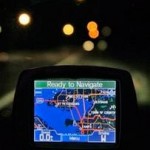Contributed by Daniel Wiessner, Tacoma, WA
Warm-up Question
To whom do you turn when you’re not sure what to do?
An (Increasingly) Open Book
Turns out everyone’s Facebook privacy is getting a lot less private all the time and, unsurprisingly, a few feathers are getting ruffled.
Ryan Singel at Wired noted the private interests which are unavoidably public via Facebook. He wrote, “I’d like to make my friend list private. Cannot. I’d like to have my profile visible only to my friends, not my boss. Cannot. I’d like to support an anti-abortion group without my mother or the world knowing. Cannot.”
 The recent addition of Facebook’s new “instant personalization” is getting particular attention due to its sharing of your personal information with Pandora, Microsoft Docs, and Yelp, in order to help those sites tailor their advertisements to fit your interests. Users can opt out, but the process is apparently complicated and confusing. The Electronic Privacy Information Center (EPIC), among other organizations, is rallying against Facebook with claims that “Instant personalization violates user expectations and reveals user information without the user’s consent.”
The recent addition of Facebook’s new “instant personalization” is getting particular attention due to its sharing of your personal information with Pandora, Microsoft Docs, and Yelp, in order to help those sites tailor their advertisements to fit your interests. Users can opt out, but the process is apparently complicated and confusing. The Electronic Privacy Information Center (EPIC), among other organizations, is rallying against Facebook with claims that “Instant personalization violates user expectations and reveals user information without the user’s consent.”
Mark Zuckerberg, the guy who started this crazy Facebook thing, stated earlier this year that Facebook is constantly being updated “to reflect what the current social norms are. A lot of companies would be trapped by the conventions and their legacies of what they’ve built… doing a privacy change for 350 million users is not the kind of thing that a lot of companies would do. … But we viewed that as a really important thing, to always keep a beginner’s mind and what would we do if we were starting the company now and we decided that these would be the social norms now and we just went for it.”
Main article from: http://www.mediapost.com/blogs/raw/?p=2351
Wired quote from: http://www.wired.com/epicenter/2010/05/facebook-rogue/#ixzz0nbOC4ojY
Zuckerberg quote from: http://www.readwriteweb.com/archives/facebooks_zuckerberg_says_the_age_of_privacy_is_ov.php
Discussion Questions
- Are you on Facebook? (Show of hands, for curiosity’s sake.)
- How do you feel about these privacy changes? Does it really matter to you?
- Some people argue that Facebook is causing these shifts in social norms that Zuckerberg spoke about. Do you agree with Zuckerberg (that Facebook is just following the trend) or do you think that it is a driving force in the change? Why?
Scripture Texts (NRSV) for Sunday, May 23, 2010 (Day of Pentecost)
(Text links are to Oremus Bible Browser. Oremus Bible Browser is not affiliated with or supported by the Evangelical Lutheran Church in America. You can find the calendar of readings for Year C at Lectionary Readings.)
For lectionary humor and insight, check the weekly comic Agnus Day.
Gospel Reflection
I’m afraid I can’t “tsk” Philip too harshly for his opening line in this week’s gospel lesson because, really, he and I have something in common here: We don’t always pay attention so well. Fortunately for the both of us, we have been blessed to hold the company of some very kind and very patient people who are willing to explain things to us again and again.
If you remember, Jesus is going to be leaving his disciples, Philip included. Reading the rest of John 14 reveals pretty clearly that the disciples are uncomfortable with the idea. The disciples general response is “But-but-but.. Wait! Where are you going? We feel kind of low on definite instructions. Is there any way we could maybe text you if we have questions?”
Jesus calmly and patiently reassures his disciples that things are going to work out just fine. In fact, he even leaves them a number to call, so to speak, in case they get confused. Jesus promises another advocate, the Holy Spirit, who will “teach [them] everything, and remind [them] of all that [Jesus has] said to [them].”
In the same way, by reminding us of Jesus’s teachings and instructions, The Holy Spirit acts as our own divine guide. This is a great gift when our easily confused moral compass might mistake North for East.
With this promise of the “Spirit of truth,” Jesus closes this week’s lesson with some of the most wonderful, calming words we could ever hear from our Lord and Savior. “Peace I leave with you; my peace I give to you. I do not give to you as the world gives. Do not let your hearts be troubled, and do not let them be afraid.” Amen, Lord Jesus.
Discussion Questions
- Go back and explore the rest of John 14. Think about how the disciples felt before and after this week’s Gospel lesson. What do you think your reaction would have been?
- Looking back at the news for today, do you think that Zuckerberg’s moral compass is confused? Or is the Facebook privacy issue a moral issue at all? Explain.
Activity Suggestions
Texting Treasure Hunt:
In this exercise, there is one leader and a group of hunters. (For youth groups, I recommend there be an adult leader acting as the “leader” as well as another adult leader in the group of “hunters.”) The leader of this exercise must know the surrounding area well. To assist in delivering accurate directions, it may be helpful for the hunters to have a GPS-enabled phone while the leader tracks them via Google Latitude or a similar service.
The leader tells the group of hunters that he or she will be waiting for them somewhere nearby before suddenly leaving them. The hunters then petition text messages from the leader in order to help find their way. The leader may be as cryptic or simple as he or she desires.
After the hunters find the leader, they should explore how they felt during the exercise. Was it unnerving to be unaware of where they were headed? Was it reassuring to know that they could ask and receive directions whenever they needed it?
Closing Prayer
Dearest Jesus, thank you for the gift of the Holy Spirit to guide us along your pathways. Thank you for the reassurance you give us every day, through the remembrance of your great sacrifice, that we need never let our hearts be troubled. Amen.




